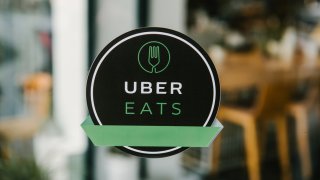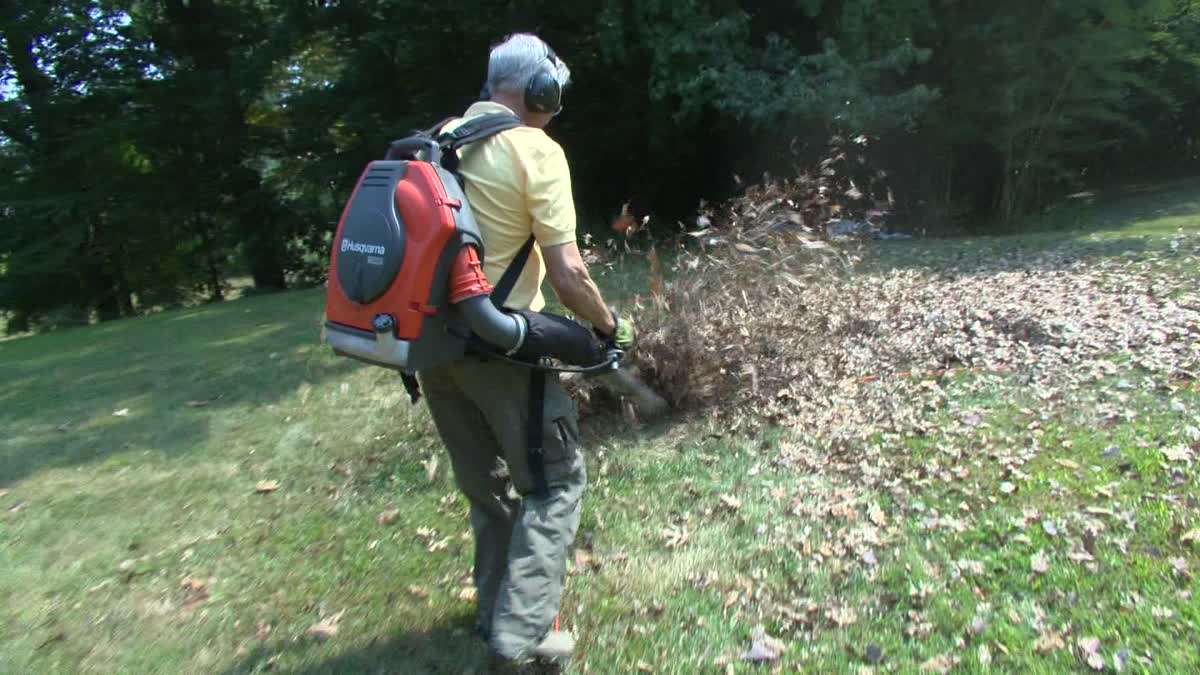
Uber Eats and Postmates have agreed to make $8.5 million in refunds to struggling Chicago restaurants — and pay $1.5 million on top of that to the city — to settle claims that the companies ignored a 15% cap on delivery fees and listed restaurants without first obtaining their consent.
During the pandemic, Chicago restaurants were fighting for survival after twice being ordered to stop serving diners indoors, then being allowed to open, but forced to limit indoor capacity to 50%.
The City Council threw restaurants a legislative life raft of sorts — allowing outdoor dining tables on the streets, sidewalks and adjacent parking lots and imposing a 15% cap on delivery fees, then extending that cap until 180 days after all pandemic-related restrictions on restaurants were repealed.
But the settlement announced Monday makes it clear that the 15% cap was widely ignored, triggering $8.5 million in refunds to overcharged or improperly listed restaurants and $1.5 million to compensate the city for the cost of investigating those abuses.
Feeling out of the loop? We'll catch you up on the Chicago news you need to know. Sign up for the weekly Chicago Catch-Up newsletter here.
The settlement includes:
• $3.3 million that Uber, which has acquired Postmates, quietly paid in September 2021 to an untold number of Chicago restaurants that were charged delivery fees exceeding the 15% cap and $2.25 million in additional fees to overcharged Chicago restaurants.
• $500,000 and $2.5 million in commission waivers to compensate Chicago restaurants that choose to work with Uber again, even after being listed on Uber’s meal delivery platforms without consent at a time when they were not under contract with Uber. The company further agreed to remove the names of all restaurants improperly listed and refrain from those abuses going forward.
Local
Josh Gold, Uber’s senior director of public policy, said the company is “pleased to put this matter behind us” and “committed to supporting” its restaurant partners.
Scott Weiner, co-owner of Fifty/50 Restaurant Group, said his 15 Chicago restaurants were most heavily impacted by Postmates, acquired by UberEats in November 2020.
Postmates used Google to try to get customers to “click on Roots Handmade Pizza or West Town Bakery at Postmates,” instead of ordering food from the actual websites of those two Fifty50 restaurants.
“Somebody just happened to click on there because they’re paying to better optimize their ad. They will then say, ‘This restaurant is closed. Try one of these instead,’ when, in fact, you never agreed to be on their website. And you are, in fact, open,” Weiner said.
“Two things would happen: People searching for us would now order from a competitor. That gives money to Postmates. Or, somebody would show up at our restaurant for a pick-up order from Postmates and then deliver it to someone else. And the next day, you’d read a review that the pizza came and it was horrible.”
The brutal reviews were no mystery, Weiner said.
“You find out somebody who has no business handling our food — very well could have been driving for Uber … just decided to put food in the back seat … maybe doesn’t have a hot bag. And you potentially lost a customer and you’ll never get that person to order from you again,” he said.
Ald. Scott Waguespack (32nd), chairman of the City Council’s Finance Committee, vowed to re-impose the 15% cap.
“Without a permanent cap and enforcement, they … can continue to abuse the system,” Waguespack said Monday.
“I know we allowed it to expire. But restaurants still need the help. For sure, restaurants struggled during COVID. But they still are, with the cost of doing business going up.”
Retiring Ald. Tom Tunney (44th), owner of Ann Sather Restaurants, said his restaurants pay “net delivery fees” ranging from 20% to 23%.
Tunney would like a permanent, 15% cap, but knows it may not be feasible.
“The cost of the delivery service is expensive on the consumer. It is expensive for the restaurant. And yet, people are still ordering. We’re doing about 20% of our business with these delivery services. Dining room patronage is not back to where it was pre-pandemic. So you’re making it up with these deliveries, at a high cost,” he said.
“The whole industry is not sustainable. … The consumer is getting spoiled about these delivery services, even though they’re charging at least one-and-a-half times what you would get if you just picked up the product yourself,” he added.
“I had an order yesterday for many dozens of cinnamon rolls being picked up by Uber. So, we approached the person and said, ‘You could save yourself a lot of money if you just called the restaurant directly.’ And their answer was, ‘There’s so many coupons and bonuses by ordering on Uber.’ They’re still comfortable with the deals that Uber is trying to make in order to attract customers and get repeat customers.”
Illinois Restaurant Association President Sam Toia said roughly 22% of Chicago restaurants rely totally on pickups and deliveries. Before the pandemic, it was 10%.
“More and more people are using third-party delivery to get food delivered to their house,” Toia said.
“Maybe there’s a way we all can come to the table and try to figure this out to help our independent restaurants.”
Restaurants listed on UberEats without consent can apply for refunds and future commission waivers at Chicago.gov/UberSettlement. Restaurants charged delivery fees over and above the 15% cap will “receive payment automatically” from Uber, according to the city.
Uber noted it has been negotiating with the city for more than a year, even as the city is in “active litigation” with Grubhub and DoorDash.
“We are confident we will prove what we’ve said before: that the allegations in this lawsuit are simply incorrect,” Grubhub spokesperson Liza Dee said in a statement.
“Grubhub will continue to aggressively defend our business while providing unwavering support to Chicago’s restaurants, diners and drivers.”



